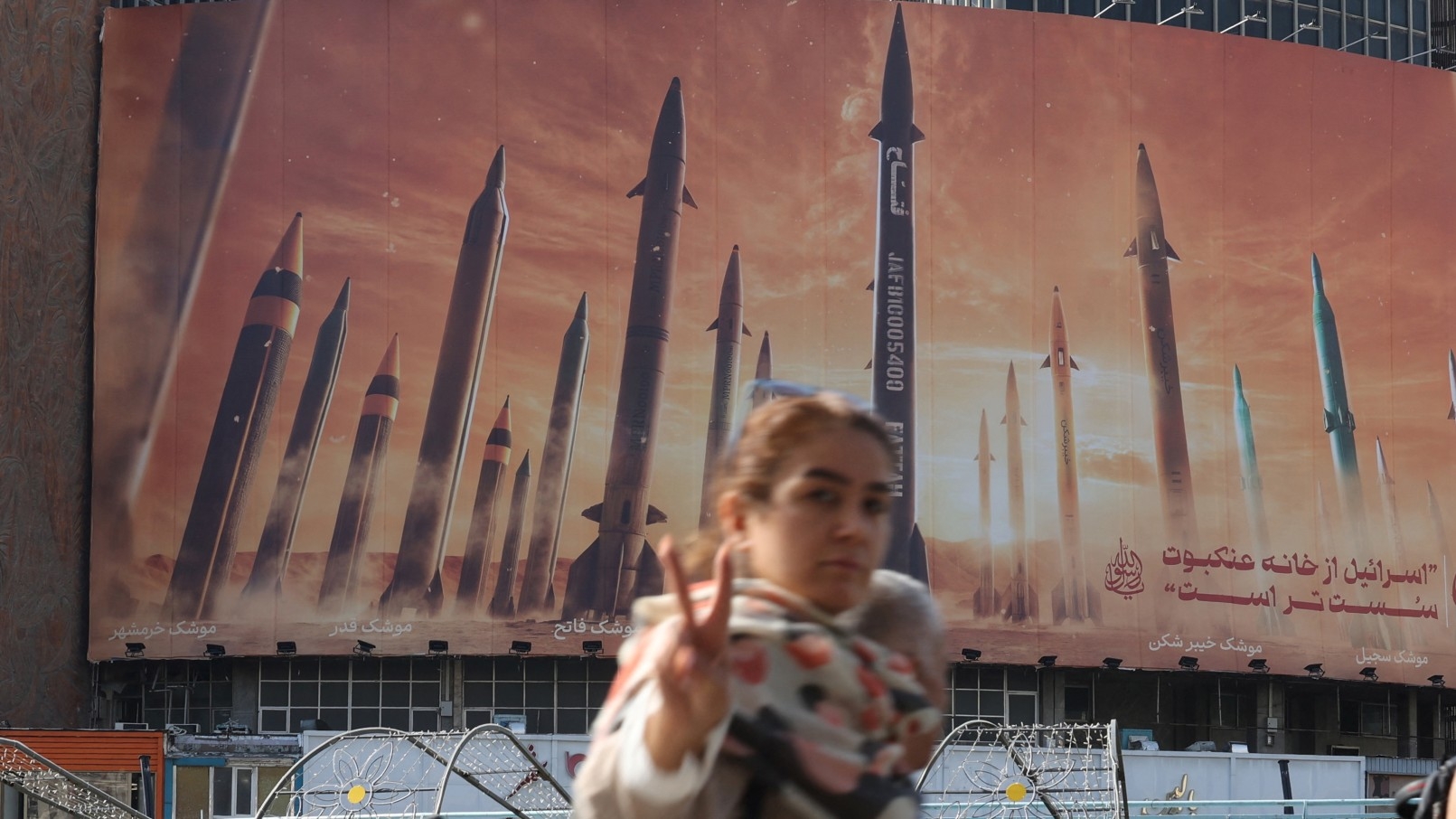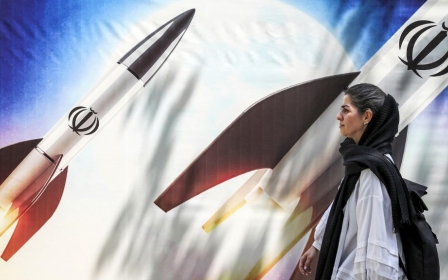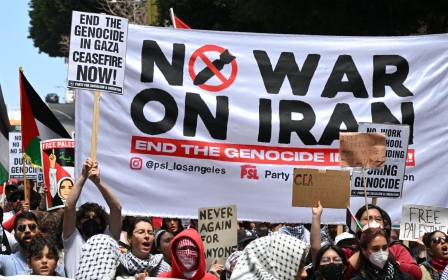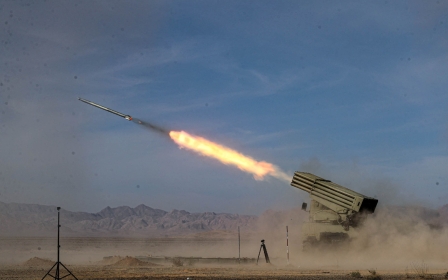Iran-Israel tensions: Only a grand bargain in the Middle East can avert regional war

The developing Israel-Iran military conflict, which saw Tehran retaliate with a massive drone and missile barrage after Tel Aviv assassinated senior Iranian commanders at the country’s consulate in Damascus, marked one of the largest direct military assaults on Israel since the 1967 war.
Israel has vowed to retaliate, despite the risks, as a decade of shadow war between Iran and Israel expands into a possible direct military conflict. This underscores the deep-seated tensions between the two states, highlighting the potential for a wider war in the region.
The region and the world are now faced with six realities.
Firstly, in recent decades, the Middle East has been gripped by turmoil amid the failure of the Israel-Palestine peace process; military interventions by Russia and the US in Afghanistan; confrontations between Israel and Lebanon; Iraqi invasions of Iran and Kuwait; the US war on Iraq; Nato and Arab intervention in Libya; the Syrian war; and the Saudi war on Yemen. These events have fuelled the spread of terrorism, sectarianism, corruption and the rise of non-state actors.
Secondly, the US withdrawal from the Iran nuclear deal intensified hostilities between the US and Iran, in addition to military confrontations across the region.
Stay informed with MEE's newsletters
Sign up to get the latest alerts, insights and analysis, starting with Turkey Unpacked
Thirdly, since 7 October and the launch of the Gaza war, the Middle East has been engulfed in a dire military, security and political situation, with the threat of regional war more serious than ever before. More than 100,000 people have been killed, wounded or captured, with more than two million Palestinians displaced in Gaza.
The Middle East is at the brink of collapse amid multiple crises. It cannot tolerate another war
Fourthly, during the past four decades, Iran and Israel have never been able to defeat each other. The US and Nato will continue to defend Israel with their full capacities. But during the eight-year Iran-Iraq War in the 1980s, although global and regional powers backed Saddam Hussein, Iran was able to defend its territory - and its military power has only increased since then. A continuing confrontation is not in anyone’s interests.
Fifthly, Israeli Prime Minister Benjamin Netanyahu has tried to escalate tensions and push the US into war with Iran. The attack on Iran’s consulate was in line with this strategy.
And finally, the Middle East is at the brink of collapse amid multiple crises. It cannot tolerate another war. There is broad consensus that a war between Iran and Israel would drag the region into another catastrophe where everyone loses.
Verge of collapse
Despite this unfortunate situation, global and regional powers are mainly focused on short-term diplomacy, rather than substantial efforts towards a broad initiative to achieve long-term peace and stability in the region.
During my mission to Germany as Iranian ambassador in the 1990s, German-Iranian relations experienced a period of constructive and productive engagement, which had broader regional and international implications.
Follow Middle East Eye's live coverage of the Israel-Palestine war
In parallel to expanding bilateral relations, the two capitals were working on a comprehensive package that included mediation by the German chancellor to alleviate hostilities between Iran and the US-Israel axis; establishing joint working groups between Iran and the West on weapons of mass destruction, terrorism, human rights and the peace process. If the United States had cooperated, the conditions in the Middle East today and Iran's relations with the West would have been different.
As I explain in my book Iran-Europe Relations: Challenges and Opportunities, talks between Germany’s then-chancellor, Helmut Kohl, and Iran’s then-president, Ali Akbar Hashemi Rafsanjani, reached a high level. Bilateral visits and cooperation promoted political, cultural and economic collaboration between Iran and Germany, which opposed US sanctions and pressure policies towards Iran. Germany also provided significant banking and insurance credits to Iran to speed up reconstruction after Iraq’s invasion.
Ultimately, through German-Iranian cooperation and negotiations with regional states, the largest humanitarian exchange between Israel and Lebanon’s Hezbollah took place in the mid-1990s. and raised hopes of a wider- ranging deal to bring peace to Israel's northern border.
"In a complicated exchange that took months to negotiate - involving German mediation between Beirut, Damascus, Tehran and Tel Aviv - the bodies of two Israeli soldiers were handed over to Israel by Hezbollah and the group also freed 17 prisoners from the Israeli-backed South Lebanon Army.
In return, Israel dug up and returned the corpses of 141 Hezbollah fighters killed in the past decade and a half of bitter clashes, and ordered the release of 45 Hezbollah prisoners from Israel-backed South Lebanon Army (SLA) run Khiam Jail in south Lebanon," reported The Irish Times.
Direct US-Iran negotiations, an end to the Gaza war, a ceasefire between Israel and Iran would be essential to such a comprehensive approach.
Following this exchange, German authorities and I discussed a broader initiative to resolve the Israel-Lebanon conflict based on Israel withdrawing its military forces from southern Lebanon and respecting Lebanon’s national sovereignty; and Hezbollah refraining from launching military attacks on northern Israel.
German, Israeli and Iranian representatives supported the proposal, but it ultimately failed after the US declined to back two key initiatives: the establishment of a collective cooperation system in the Gulf, and the creation of joint working groups between Iran and the West on weapons of mass destruction, terrorism, human rights and the peace process.
But this important historical precedent can still be utilised. Direct US-Iran negotiations, an end to the Gaza war, an initiative on a ceasefire between Israel and Iran, and a regional dialogue among Gulf countries would be essential to such a comprehensive approach.
The Middle East is tired and wounded, a failed region on the verge of collapse. All piecemeal, short-term remedies in past decades have failed. It is time for a regional and international grand bargain to bring a broad and sustainable peace. This requires audacity and courageous decisions by the leaders of global and regional powers alike.
The views expressed in this article belong to the author and do not necessarily reflect the editorial policy of Middle East Eye.
Middle East Eye delivers independent and unrivalled coverage and analysis of the Middle East, North Africa and beyond. To learn more about republishing this content and the associated fees, please fill out this form. More about MEE can be found here.



